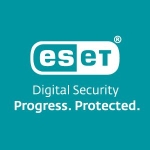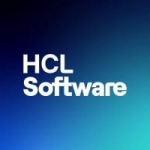The solution is primarily used for protecting endpoints.
Harmony Endpoint is a complete endpoint security solution built to protect the remote workforce from today’s complex threat landscape.
It prevents the most imminent threats to the endpoint such as ransomware, phishing or drive-by malware, while quickly minimizing breach impact with autonomous detection and response. This way, your organization gets all the endpoint protection it needs, at the quality it deserves, in a single, efficient, and cost-effective solution and able to detect/block/monitor and response to any malicious activity happening on the endpoint. With the single agent deployed on the endpoint, it's able to provide complete EDPR functionality with help of multiple security features/modules.
Harmony Endpoint provides complete EDPR functionality using multiple modules/features which are available with the solution such as Compliance, Anti-Malware, Media Encryption and Port Protection, Firewall and Application Control, Full Disk Encryption, Remote access VPN, Capsule DOC, URL Filtering. Anti-Bot, Anti-Ransomware, Behaviour Guard, Forensic, Threat Emulation, and Anit-Exploit.
We are able to protect endpoints from any next generation of attack and modules can be enabled/disabled based on organization requirements. Harmony Endpoint is able to detect/block/monitor and mitigate attacks at an endpoint using logs which is been captured by an agent installed on the endpoint.
Agents send telemetry/metadata to a centralized console for forensic purposes. Policies for the endpoints can be created based on the user name or endpoint.
Integration with a threat intel platform for blocking any attack at an early stage is great. The complete solution can be hosted on-prem or via SaaS - a cloud remote access VPN is provided as default in base licence.
Different policy servers can be configured and hosted at each location so the agent does not have to reach a central location to take policy updates. Policy servers are created using OVF file which can be installed on any virtual platform such as VMware. This offers a more secure way of communication between the policy server and the management console (using certificate/SIC communication).
Agent footprints are low on endpoints and integration with other security solutions is great for sharing threat intel within an organizational network or over the cloud. Anti-ransomware modules are very strong and are able to detect any ransomware attacks at a very early stage.
The host-based firewall policy configuration is simple.
The solution has limitations if it's hosted on-premise or as a SaaS. You need to plan accordingly on the model that suits the organization. On-Premise, for example, does not support threat hunting. Hosting on the cloud will have an impact on the user who is connecting to a central location for internet access as it will add infra cost.
We also need to look over the expertise of the support executives who require more training and focus as well in this service area and if we can think over the cost of the product.

















